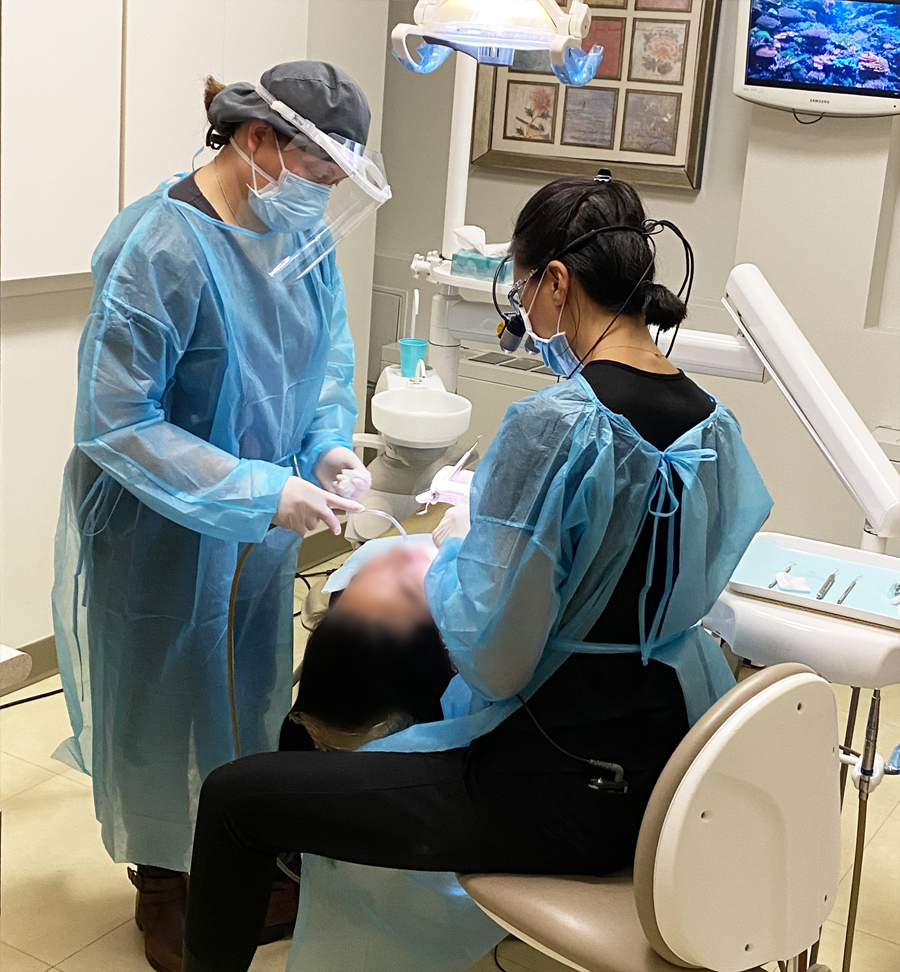Meet Your Friendly Area Dentist Eugene OR and Their Services
Meet Your Friendly Area Dentist Eugene OR and Their Services
Blog Article
A Guide to Common Dental Conditions That Require a Dentist's Treatment
Toothaches, for example, can be symptomatic of extreme problems such as tooth cavities, split teeth, or abscesses, each needing details treatments like fillings or root canals. Impacted wisdom teeth and jaw problems can introduce substantial pain and complications.
Toothaches
Toothaches are an usual dental condition that can range from light discomfort to severe discomfort, commonly indicating an underlying problem that needs specialist attention. This pain can stem from a selection of sources, including tooth decays, fractured or fractured teeth, and dental abscesses. Each of these conditions presents significant risks if left unattended, potentially resulting in more severe problems.
Dental cavities, additionally known as caries, are caused by the buildup of plaque that deteriorates tooth enamel, leading to openings or pits in the influenced teeth. Abscesses are unpleasant infections at the root of a tooth or between a tooth and the gum tissue, generally resulting from severe degeneration or unattended dental caries.
Reliable therapy of toothaches includes dealing with the source. This might include dental fillings for tooth cavities, crowns for broken teeth, or origin canals and prescription antibiotics for abscesses. Very early treatment by a dental professional can stop more degeneration and ease pain, making sure ideal oral wellness.
Periodontal Condition

The key reason of gum condition is microbial plaque, a sticky, anemic film that continuously develops on teeth. Poor oral health, cigarette smoking, genetic predisposition, and particular medical problems, such as diabetes, can aggravate the danger of creating periodontal condition. Routine dental exams are essential for early detection and monitoring of this condition.
Therapy for gum condition ranges from professional dental cleansing and scaling to more innovative procedures like root planing and gum surgical treatment, depending on the seriousness. Maintaining great oral health practices, including cleaning two times daily, flossing, and using an antibacterial mouth wash, can substantially decrease the danger of periodontal condition and promote much healthier gums.
Tooth Cavities
Tooth cavities, additionally called tooth decays, are an usual dental condition identified by the damage of tooth enamel as a result of acid-producing bacteria in the mouth. These bacteria grow on sugars and starches from food and beverages, producing acids that slowly erode the enamel, bring about dental caries development.
Early-stage dental caries may disappoint signs, yet as they progress, they can create toothache, level of sensitivity to warm or cold, visible holes or pits in the teeth, and staining. If left untreated, cavities can penetrate much deeper layers of the tooth, possibly causing serious discomfort, infection, and also missing teeth.
Protecting against tooth cavities entails a mix of good oral health techniques and dietary practices. Normal cleaning with fluoride tooth paste, flossing, and regular dental examinations are essential. Dental practitioners may likewise suggest added preventative measures, such as fluoride treatments and dental sealants, to secure teeth from decay.
Small cavities can be resolved with dental fillings, which recover the tooth's structure. Much more innovative situations might need crowns or even origin canal treatment if the degeneration has actually reached the tooth's pulp.
Impacted Wisdom Teeth
Affected knowledge teeth are a prevalent dental problem that takes place when the third molars, commonly referred to as wisdom teeth, fall short to completely emerge or line up appropriately within the mouth. This problem usually arises from inadequate space in the jaw or an unusual development angle of the teeth. Impacted knowledge teeth can lead to a selection of issues, consisting of damages, infection, and discomfort to surrounding teeth.
When wisdom internet teeth become influenced, they are usually partly erupted or continue to be completely under the gum line. This partial eruption can produce a pathway for microorganisms to get in the gums, causing infections that manifest as swelling, pain, and also fever (dentist in eugene oregon). Furthermore, impacted wisdom teeth can put in stress on neighboring teeth, possibly creating crowding or moving
An extensive oral exam, normally involving X-rays, is vital for identifying affected wisdom teeth. Therapy often entails medical removal, executed by a dental specialist. The treatment aims to minimize discomfort and prevent additional complications, such as cysts or damage to bordering bone structures. Post-operative care is essential to make sure proper healing and minimize the danger of infection. Routine dental check-ups are a good idea to keep an eye on the problem and maintain oral health and wellness.
Jaw Problems
Verdict

Oral dental caries, likewise understood as decays, are triggered by the buildup of plaque that deteriorates tooth enamel, leading to holes or pits in the impacted teeth. Abscesses are excruciating infections at the origin of a more info here tooth or between the periodontal and a tooth, usually resulting from serious decay or unattended cavities.
Affected wisdom teeth are a common dental problem that occurs when the 3rd molars, typically referred to as wisdom teeth, fail to completely emerge or straighten correctly within the mouth. Influenced knowledge teeth can lead to a range of issues, consisting of discomfort, damage, and infection to adjacent teeth.
Additionally, affected wisdom teeth can apply stress on surrounding teeth, possibly creating crowding or changing.
Report this page